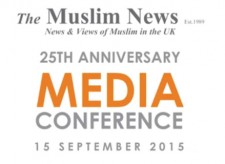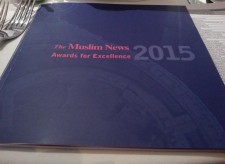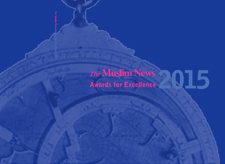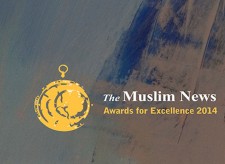Consorts of the Caliphs: Women and the Court of Baghdad. By Ibn al-Sa’i al-Baghdadi, New York: New York University Press. Pp 226. HB. 2015. £19.99
The picture of Oriental women in general and especially that of Muslim women being very shy, secluded and submissive clearly dominated both factual and fictional narratives about them both in the West and the East until recently. The image of a Muslim woman was all too often associated with exotic, sensual and mystique surroundings of a harem (women’s quarter) where scores of women resided in total seclusion only to be of service to the all-powerful and wealthy Oriental Caliph or Sultan.
Although contemporary scholarship, spearheaded by several Muslim women including Rana Kabbani ( Europe’s Myths of Orient, 1986), Fatima Mernissi ( Beyond the Veil, 1985) and Amina Wadud (Qur’an and Women, 1999, and Inside the Gender Jihad, 2006) have helped to break-down entrenched barriers, however medieval Muslim women have continued to be portrayed as being backward, exotic and gullible up to this day.
The book under review is a powerful and much-need corrective and rebuttal of such misrepresentation. The author of this treatise was Taj al-Din Ali ibn Anjab ibn al-Sa’i (1197-1276CE, better known as Ibn al-Sa’i al-Baghdadi), who lived through a challenging and turbulent period in the history of the Abbasid empire. A noted historian, biographer, poet and literary figure, he authored scores of books on history, biography, poetry and related topics, capturing the lives, works and contributions of both prominent and not-so well-known personalities of Baghdad, both male and female.
Based on insider knowledge of life in the capital of Abbasid Caliphate during the thirteenth century as well as well-known literary sources (such as Abul Faraj al-Isfahani’s Kitab al-Aghani [Book of Songs] and other similar works), in this book the author provides very interesting and informative anecdotal accounts of 39 medieval Muslim women who had played an active part in the social, political, educational, religious, intellectual and literary activities of the time. This is a rare and unusual book providing glimpses into the lives of influential Muslim women who often pulled the strings from behind the scene and, as such, they would have remained unknown and unacknowledged had it not been for the efforts of noble and diligent scholars like Ibn Sa’i.
For example, referring to Banafsha al-Rumiyyah, Ibn al-Sa’i states, ‘The Caliph [al-Mustadi] held her in high regard and included her as part of his inner circle. She had authority and real power. She was also a godly, magnanimous woman who did all manner of good works and pious deeds. She looked after the poor and destitute and performed many righteous acts of charity. She converted her palace on the banks of the Tigris in Lower Baghdad into a Hanbali law college and continually increased its endowment. She also had a stone bridge built over the ‘Isa Canal and a pontoon bridge fixed across Tigris…she passed away on Friday the twenty-ninth of Rabi’ al-Awwal in the year 598 [December 27, 1201]. Her funeral prayers were held in the Courtyard of Peace in the Caliphal Palace…’ (pp.111-113)
Translated by the editors of The Library of Arabic Literature at NYUP, edited by Shawkat Toorawa of Cornell University and introduced by Julia Bray, Laudian Professor of Arabic at Oxford University, in her foreword to the book, Marina Warner of Oxford University, explains that the ‘Consorts of the Caliphs is a work of historical biography, not an anthology of fictions, and it gives voice to the spirited, learned, influential women of the medieval past in the Abbasid empire. It unbinds our ears and eyes to some of what they said and did. The author/compiler Ibn Sa’i was himself a poet and a librarian, and through patient sifting of archival memories, both oral and written, he communicates precious echoes and fragments from a period spanning five hundred years.’ (p.xii)
As expected, the biographical accounts of all the women covered in this book vary in length and details, with some being more revealing while others are anecdotal and very brief. Even so, the information that the author has bequeathed to posterity is both insightful and will also prove to be indispensable for the study of medieval Muslim culture and society. The fact that the original Arabic text appears side-by-side with English translation adds to the value of this volume enabling Arabic readers to compare the original text with the translation.
Julia Bray’s introduction is very useful in placing the author and his scholarship in its context while the bibliography, list of Abbasid Caliphs, and Glossary of Women covered in this volume will no doubt be of much help for future researchers and writers. I very much enjoyed reading this rare and very interesting volume and the translators deserve much credit for making it available to the English-speaking world.
Muhammad Khan, is author of The Muslim 100 (2008) and The Muslim Heritage of Bengal (2013)

















